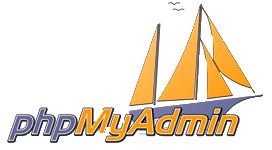Product Properties
| Package name | phpMyAdmin |
| Application name | phpMyAdmin |
| Volume selectable | yes |
| Dependencies | Web Station, PHP 7.3 |
| Service name (SSH) | pkgctl-phpMyAdmin |
| Shared Folder | no |
| Home Folder | no |
| Licensing | no |
| Hyper Backup support | no |
| Certificate selection | no |
| Privileges | no |
| Application portal | no |
| Firewall port | 80, 443 |
| Date | 27 April 2021 |
| Version | 4.9.6 |
| DSM | 6.2.4 |
Functionality
phpMyAdmin is a software tool to manage MariaDB databases that you can install on your NAS.
Installation
In Package Center, select the phpMyAdmin package.

Click on the Install button and select a Volume if multiple Volumes exist on your NAS.
Configuration
There are no specific configurations. After installation, you will find an application in your main menu and files in the /web/phpMyAdmin folder.
Click on the phpMyAdmin application in the main menu to open it. Log in with the root password of the database.
Note that you can also open the application via https://ip_address_nas/phpMyAdmin. When you directly use this URL, you do not have to log in to DSM first.
Logging and notification
There is no logging or notification in phpMyAdmin.
Stop and run
From Package Center, select the phpMyAdmin package. Select Stop from the drop-down list to stop the service or click Run to start it again on the application page.
Uninstall and removal
From Package Center, select the phpMyAdmin package. Select Uninstall from the drop-down list to uninstall the service and application.
This will also remove the item from the main menu and the files in the /web/phpMyAdmin folder, including that folder itself.
Notes
You need to run phpMyAdmin on the same server that runs the database application, typically MariaDB 10.
Thanks for reading
This post is donation-ware, and I made it to help you. Please consider leaving a comment or buying me a coffee if it did. I will be eternally grateful.
Paul Steunebrink / Storage Alchemist
